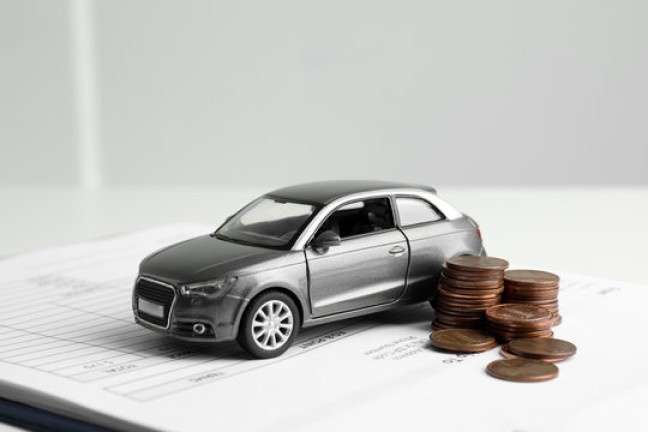As someone who has navigated the world of car financing, I’ve come to realize that not all financing options are created equal. One of the more recent developments in car finance is the rise of “black box car finance.” For anyone unfamiliar with this term, it may sound a bit mysterious, but once you break it down, it’s a relatively simple concept that could be an excellent option for many drivers. In this article, I will walk you through what black box car finance is, how it works, its pros and cons, and how it compares to other car finance options. Along the way, I’ll illustrate the key points with examples and calculations to help you make an informed decision.
Table of Contents
What Is Black Box Car Finance?
Black box car finance, often referred to as “telematics car finance,” involves installing a small device (the “black box”) into your vehicle that monitors your driving habits. The device collects data on things like speed, braking, acceleration, and mileage. This data is then used by the finance provider to determine the terms of your car loan. The idea is that safer drivers can be rewarded with lower monthly payments, while riskier drivers might face higher costs.
How Does Black Box Car Finance Work?
To better understand how black box car finance works, let’s break it down into a few simple steps:
- Sign the Agreement: You agree to take out a car loan with a black box installed in the vehicle. The loan is typically a hire purchase (HP) or personal contract purchase (PCP) arrangement.
- Installation of the Black Box: The finance provider will install a black box in your car. This device is usually hidden, often in the vehicle’s dashboard or under the bonnet, so it doesn’t interfere with your driving experience.
- Monitor Your Driving: The black box monitors your driving behavior. It tracks how often you brake sharply, accelerate quickly, or drive at high speeds. It also tracks the mileage you put on the car.
- Monthly Payments Based on Your Driving: Based on the data collected by the black box, the finance provider may adjust your monthly payments. If you drive safely, you could be rewarded with lower payments. Conversely, if your driving is deemed risky, your payments could increase.
- End of Term: At the end of the finance term, you either return the car (if it’s a PCP deal) or pay the balloon payment (if applicable). In either case, the black box is removed.
The Pros of Black Box Car Finance
I find that black box car finance offers some distinct advantages, especially for certain groups of drivers. Let’s go through the key benefits:
- Lower Payments for Safer Drivers: If you drive carefully, you could see significant savings on your monthly payments. Safe driving could lead to lower costs over the term of the agreement. For example, a driver who avoids heavy braking and keeps a consistent speed could see their payments reduced by as much as 10–20%.
- Access to Car Finance for Younger Drivers: Younger drivers, especially those under 25, often face higher insurance premiums and loan rates. A black box allows them to demonstrate that they are safe drivers, potentially lowering their monthly payments. This is a great option for those who might struggle to get finance through traditional methods due to their lack of driving history.
- Increased Accountability: The presence of a black box makes you more aware of your driving habits. Knowing that your actions are being monitored might encourage safer driving, which benefits both you and other road users.
- Insurance Discounts: In some cases, the same black box used for car finance may also be linked to your insurance policy. This means you could get a discount on your insurance premiums based on your driving behavior, adding another layer of savings.
The Cons of Black Box Car Finance
However, like any financial product, black box car finance isn’t without its downsides. I’ve come across a few potential drawbacks that are worth considering:
- Privacy Concerns: The most obvious downside to black box car finance is the loss of privacy. Since the device tracks your every move on the road, some drivers may feel uncomfortable with the level of monitoring involved.
- Increased Payments for Risky Drivers: If you drive aggressively, your monthly payments could increase. Hard braking, rapid acceleration, or speeding could all signal risky driving habits, leading to higher costs. For drivers who struggle with these behaviors, black box car finance might not be the best option.
- Restriction on Mileage: Many black box finance deals come with mileage limits. Exceeding these limits can result in additional charges at the end of the contract. For drivers who rely on their cars for long-distance travel, this could be a significant downside.
- Potential for Misinterpretation of Driving Habits: In some cases, the black box might misinterpret your driving. For example, it could penalize you for braking hard in an emergency situation, even though you were acting responsibly.
How Does Black Box Car Finance Compare to Traditional Car Finance?
To get a clearer picture of where black box car finance fits into the broader car financing landscape, let’s compare it with some traditional options like hire purchase (HP) and personal contract purchase (PCP). Below is a comparison table that highlights the key differences between these options:
| Feature | Black Box Car Finance | Hire Purchase (HP) | Personal Contract Purchase (PCP) |
|---|---|---|---|
| Monthly Payments | Based on driving habits | Fixed, based on car value | Fixed, but can be lower initially |
| Ownership at End of Term | No, unless paid off | Yes | Yes, with balloon payment option |
| Mileage Restrictions | Yes, monitored by device | No | Yes, with excess mileage charges |
| Insurance Link | Often linked for discounts | Not applicable | Not applicable |
| Risk of Higher Payments | Yes, for risky drivers | No | Yes, depending on balloon payment |
| Privacy Concerns | High, due to monitoring | Low | Low |
| Ideal for Young Drivers | Yes | No | Yes |
Example Calculation: Black Box vs. Traditional Finance
Let’s take a practical example to compare the costs between black box car finance and a traditional hire purchase agreement. Assume the following:
- The car is worth £15,000.
- The loan term is 36 months.
- The interest rate is 6%.
- The black box finance deal offers a 15% discount on monthly payments for safe driving.
For the hire purchase deal, the calculation would look like this:
HP Loan Calculation:
Loan Amount: £15,000
Interest Rate: 6%
Term: 36 months
Using a simple loan calculator, the monthly payment would be £460.22.
Now, let’s compare this with a black box deal where you drive safely and qualify for a 15% discount.
Black Box Loan Calculation (with 15% discount):
Loan Amount: £15,000
Interest Rate: 6%
Term: 36 months
Monthly Payment without Discount: £460.22
Discount: 15%
Discounted Monthly Payment: £460.22 × 0.85 = £390.69
As you can see, by driving safely, the black box car finance option would save you £69.53 per month compared to the traditional hire purchase deal. Over 36 months, that adds up to £2,501.08 in savings.
Is Black Box Car Finance Right for You?
Whether or not black box car finance is the right choice depends on a few factors. If you’re a safe driver, it could save you a significant amount of money over time. However, if you tend to drive aggressively or need a car for long commutes, you might want to reconsider.
Here are a few things to think about before deciding:
- Do you have a good driving record? If you’re a safe driver, black box finance could reward you with lower monthly payments.
- How much do you drive? If you regularly drive long distances, be sure to check the mileage limits in the contract.
- Are you comfortable with surveillance? Consider whether the monitoring aspect of black box finance is something you’re okay with.
- Do you need flexibility? If you want complete control over your payments and driving habits, traditional finance options might offer more freedom.
Conclusion
Black box car finance offers an innovative solution for those who want to save money on their car loan and demonstrate good driving habits. While it may not be for everyone, it provides a valuable alternative for younger drivers or anyone looking to lower their costs by driving more safely. By understanding the pros and cons and how it compares to other financing options, you can make a more informed decision about whether black box car finance is right for you.
Ultimately, I believe black box car finance is an excellent option for safe drivers who are looking for a more personalized approach to their car loan. However, it’s important to evaluate your driving habits, lifestyle, and comfort with monitoring before making the final decision.





